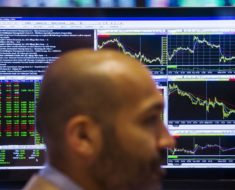Conflicting news about the U.S. trade deal with China has sent the stock market in both upwards and downwards directions. The Dow Jones moves up with positive news and then down when the news is somewhat negative. The impact hasn’t been severe, as no booms or busts occurred. However, some confusion arises when details come out of trade talks. Initial reports often indicate positive news, but details often damper expectations. Recent news coming out of trade talks reveal China tariffs are to stay in place until after the 2020 election. The announcement led to an expected effect on the market: the stock market saw a slight decline.
The Dow Jones does reflect record highs, but the numbers dropped off slightly when the news broke. The revelation about tariffs remaining in effect may surprise some, as word that China and the U.S. reached an agreement on a “Phase One” trade deal.
According to Forbes, positive developments did emerge out of the first-phase agreement. Reportedly, China intends to purchase $200 billion in products from the United States. Agriculture, manufacturing, and other industries would benefit from the proposed purchasing agreement. Also, China will reduce its demands on U.S. companies to reveal privileged technological information.
The United States will also remove China’s designation as a currency manipulator, which would assuredly please Beijing. At present, talks appear moving in a positive direction, but no official agreements are in place.
Tariffs remain the most significant area on contention and one that affects the economies of both nations. The United States would likely prefer to remove tariffs since the burdens on American businesses would decrease. However, a strategic reason exists why the tariffs stand. The United States may use the duties as leverage to increase the chances of China’s compliance with any agreements.
The tariffs currently impact about $360 billion in imported Chinese goods and would remain in effect for at least 10 months after signing the Phase One agreement.
Dil Bole Oberoi





